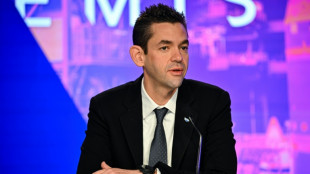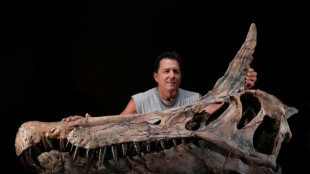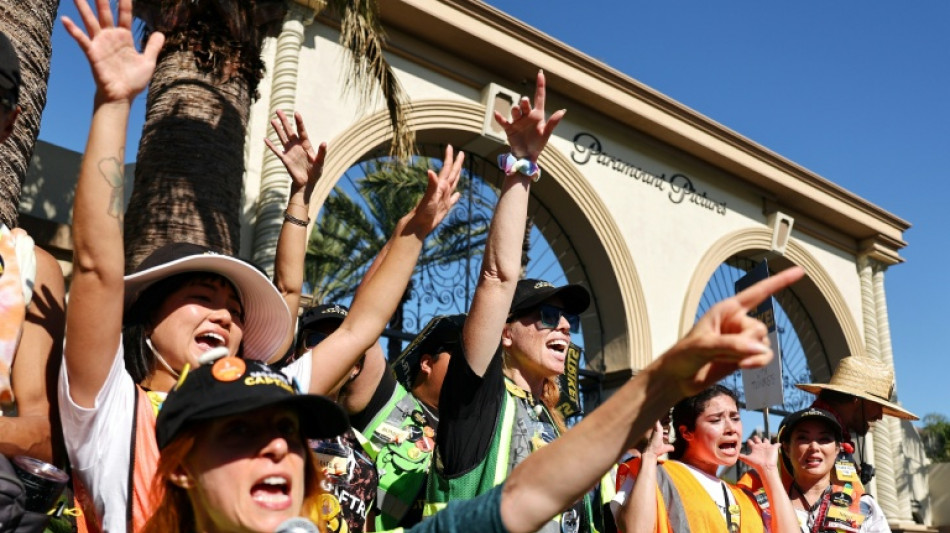
-
 Fears of Mideast war as US-Iran conflict flares
Fears of Mideast war as US-Iran conflict flares
-
Guardiola expects short absence for injured Haaland

-
 Liverpool's set play transformation a return to 'normal' for Slot
Liverpool's set play transformation a return to 'normal' for Slot
-
Man City win to close on Arsenal as Liverpool hit five

-
 Kane bags brace as Bayern end Dortmund's title hopes
Kane bags brace as Bayern end Dortmund's title hopes
-
Semenyo sinks Leeds as Man City close gap on Arsenal

-
 Last-gasp Lukaku saves Napoli's blushes at rock-bottom Verona
Last-gasp Lukaku saves Napoli's blushes at rock-bottom Verona
-
Could the US-Israel war on Iran drag on?

-
 Iranians abroad jittery but jubilant at US, Israeli strikes
Iranians abroad jittery but jubilant at US, Israeli strikes
-
Pakistan 'have underperformed' says Agha after T20 World Cup exit

-
 Under-strength Toulouse overpower Montauban in Top 14
Under-strength Toulouse overpower Montauban in Top 14
-
Vietnam AI law takes effect, first in Southeast Asia
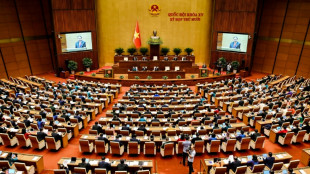
-
 Brazil's Lula visits flood zone as death toll from landslides hits 70
Brazil's Lula visits flood zone as death toll from landslides hits 70
-
New Zealand into T20 World Cup semis as Sri Lanka avoid big Pakistan loss

-
 Medvedev wins Dubai title as Griekspoor withdraws
Medvedev wins Dubai title as Griekspoor withdraws
-
First Yamal hat-trick helps Liga leaders Barcelona beat Villarreal

-
 Liverpool hit five past West Ham, Haaland-less City face Leeds test
Liverpool hit five past West Ham, Haaland-less City face Leeds test
-
Van der Poel romps to cobbled classic win

-
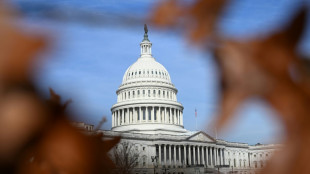 Republicans back Trump, Democrats attack 'illegal' Iran war
Republicans back Trump, Democrats attack 'illegal' Iran war
-
Madonna is surprise attraction at Dolce & Gabbana Milan show
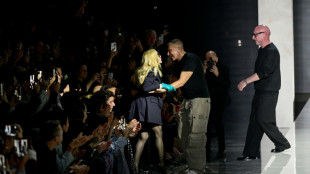
-
 Farhan keeps Pakistan hopes alive as they post 212-8 against Sri Lanka
Farhan keeps Pakistan hopes alive as they post 212-8 against Sri Lanka
-
Afghanistan says civilians killed in Pakistan air strikes

-
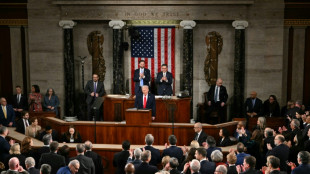 Tug of war: how US presidents battle Congress for military powers
Tug of war: how US presidents battle Congress for military powers
-
Residents flee as Iran missiles stun peaceful Gulf cities

-
 Streets empty and shops close as US strikes confirm Iranian fears
Streets empty and shops close as US strikes confirm Iranian fears
-
Israelis shelter underground as Iran fires missiles
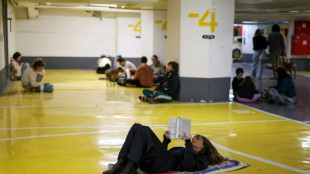
-
 Bournemouth held by Sunderland in blow to European bid
Bournemouth held by Sunderland in blow to European bid
-
VAR expanded to include second bookings and corners for World Cup

-
 Iranians in Istanbul jittery but jubilant at US, Israeli strikes
Iranians in Istanbul jittery but jubilant at US, Israeli strikes
-
Congo-Brazzaville president vows to keep power as campaign kicks off
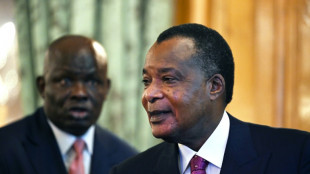
-
 US, Israel launch strikes on Iran, Tehran hits back across region
US, Israel launch strikes on Iran, Tehran hits back across region
-
Germany's Aicher wins women's super-G in Soldeu

-
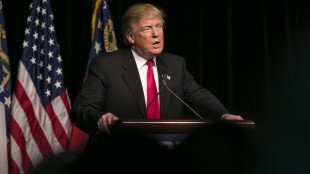 Fight against terror: Trump threatens Tehran's mullahs
Fight against terror: Trump threatens Tehran's mullahs
-
US and Israel launch strikes on Iran, explosions reported across region

-
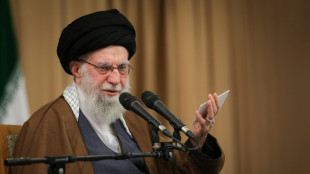 Iran's Khamenei: ruthless revolutionary at apex of Islamic republic
Iran's Khamenei: ruthless revolutionary at apex of Islamic republic
-
In Iran attack, Trump seeks what he foreswore -- regime change
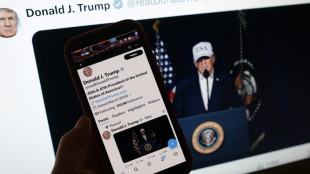
-
 Climate change forces facelift for Michelangelo masterpiece
Climate change forces facelift for Michelangelo masterpiece
-
Trump says US aims to destroy Iran's military, topple government
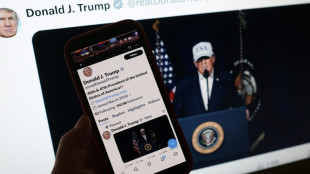
-
 Acosta wins season-opening MotoGP sprint after Marquez penalty
Acosta wins season-opening MotoGP sprint after Marquez penalty
-
US and Israel launch strikes against Iran

-
 Afghanistan says Pakistan fighter jet down as cross-border strikes flare
Afghanistan says Pakistan fighter jet down as cross-border strikes flare
-
Kerr says only '85 percent' fit for Women's Asian Cup

-
 Messi's Inter Miami to visit White House: US media
Messi's Inter Miami to visit White House: US media
-
Thunder beat Nuggets in overtime on Gilgeous-Alexander's return
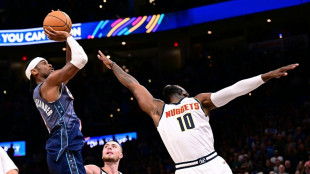
-
 'It's surreal': Zimbabwe superfans revel in unexpected ride to India
'It's surreal': Zimbabwe superfans revel in unexpected ride to India
-
New 'Wuthering Heights' film unleashes fresh wave of Bronte-mania

-
 US backs Pakistan's 'right to defend itself' after strikes on Afghanistan
US backs Pakistan's 'right to defend itself' after strikes on Afghanistan
-
Bezzecchi beats Marquez to pole at season-opening Thailand MotoGP

-
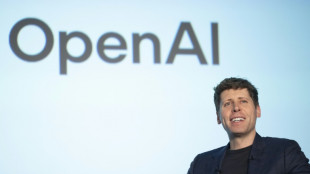 OpenAI strikes Pentagon deal with 'safeguards' as Trump dumps Anthropic
OpenAI strikes Pentagon deal with 'safeguards' as Trump dumps Anthropic
-
Oscar-nominated 'F1' sound engineers recreate roar of racetrack


US labor unions fight to contain AI disruption
As artificial intelligence threatens to upend entire sectors of the economy, American labor unions are scrambling to protect workers, demand corporate transparency, and rally political support—an uphill battle in a rapidly changing world.
"As laborers, the ability to withhold our labor is one of our only tools to improve our lives," explained Aaron Novik, a key organizer with Amazon's ALU union.
"What happens when that disappears (to AI)? It's a real existential issue," he added.
Automation has already transformed most industries since the 1960s, typically reducing workforce numbers in the process.
But the emergence of advanced "physical AI" promises a new generation of intelligent robots that won't be limited to repetitive tasks -- potentially displacing far more blue-collar workers than ever before.
The threat extends beyond manufacturing.
The CEO of Anthropic, which created Claude as a competitor to ChatGPT, warned last week that generative AI could eliminate half of all low-skilled white-collar jobs, potentially driving unemployment rates up to 10-20 percent.
"The potential displacement of workers and elimination of jobs is a significant concern not just for our members, but for the public in general," said Peter Finn of the International Brotherhood of Teamsters, America's largest union.
- Vetoes -
The Teamsters have focused their efforts on passing legislation limiting the spread of automation, but face significant political obstacles.
California's governor has twice vetoed bills that would ban autonomous trucks from public roads, despite intense lobbying from the state's hundreds of thousands of union members.
Colorado's governor followed suit last week, and similar battles are playing out in Indiana, Maryland, and other states.
At the federal level, the landscape shifted dramatically with the change in the White House.
Under former president Joe Biden, the Department of Labor issued guidelines encouraging companies to be transparent about AI use, involve workers in strategic decisions, and support employees whose jobs face elimination.
But US President Donald Trump canceled the protections within hours of taking office in January.
"Now it's clear. They want to fully open up AI without the safeguards that are necessary to ensure workers' rights and protections at work," said HeeWon Brindle-Khym of the Retail, Wholesale and Department Store Union (RWDSU), which represents workers in the retail sector.
- Rush to AI -
Meanwhile, companies are racing to implement AI technologies, often with poor results.
"By fear of missing out on innovations, there's been a real push (to release AI products)," observed Dan Reynolds of the Communications Workers of America (CWA).
The CWA has taken a proactive approach, publishing a comprehensive guide for members that urges negotiators to include AI provisions in all collective bargaining agreements.
The union is also developing educational toolkits to help workers understand and negotiate around AI implementation.
A handful of unions have successfully negotiated AI protections into their contracts.
Notable examples include agreements with media company Ziff Davis (which owns Mashable) and video game publisher ZeniMax Studios, a Microsoft subsidiary.
The most significant victories belong to two powerful unions: the International Longshoremen's Association, representing dock workers, secured a moratorium on full automation of certain port operations, while the Screen Actors Guild (SAG-AFTRA) won guarantees that actors must be consulted and compensated whenever their AI likeness is created.
These successes remain exceptional, however.
The American labor movement, as a whole, lacks the bargaining power enjoyed by those highly strategic or publicly visible sectors, said Brindle-Khym.
"Smaller contract-by-contract improvements are a long, slow process," she added.
Despite frequent accusations by corporate interests, the unions' goal isn't to halt technological progress entirely.
"Workers are usually not seeking to stop the march of technology," noted Virginia Doellgast, a Cornell University professor specializing in labor relations.
"They just want to have some control."
As AI continues its rapid advance, the question remains whether unions can adapt quickly enough to protect workers in an economy increasingly dominated by artificial intelligence.
P.Mathewson--AMWN
